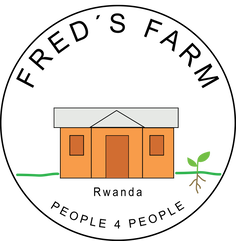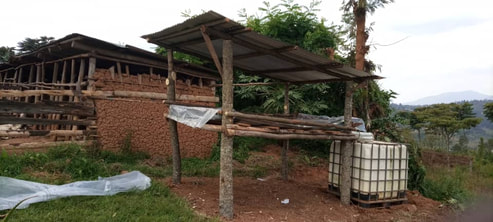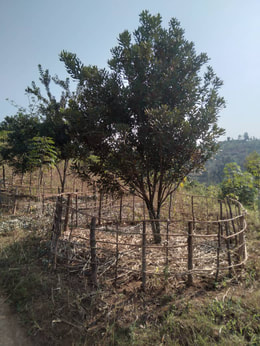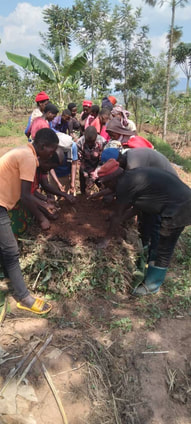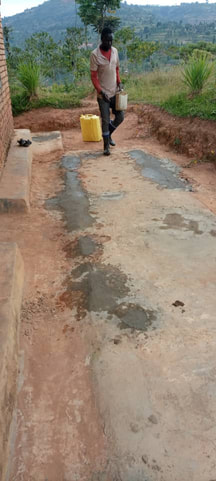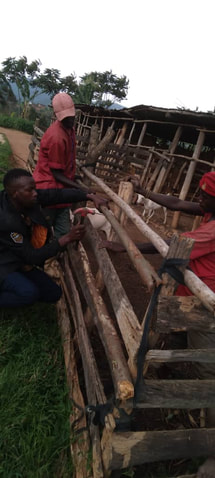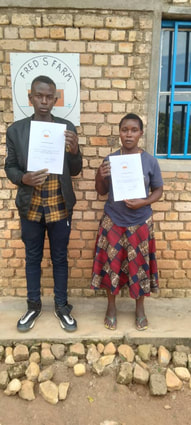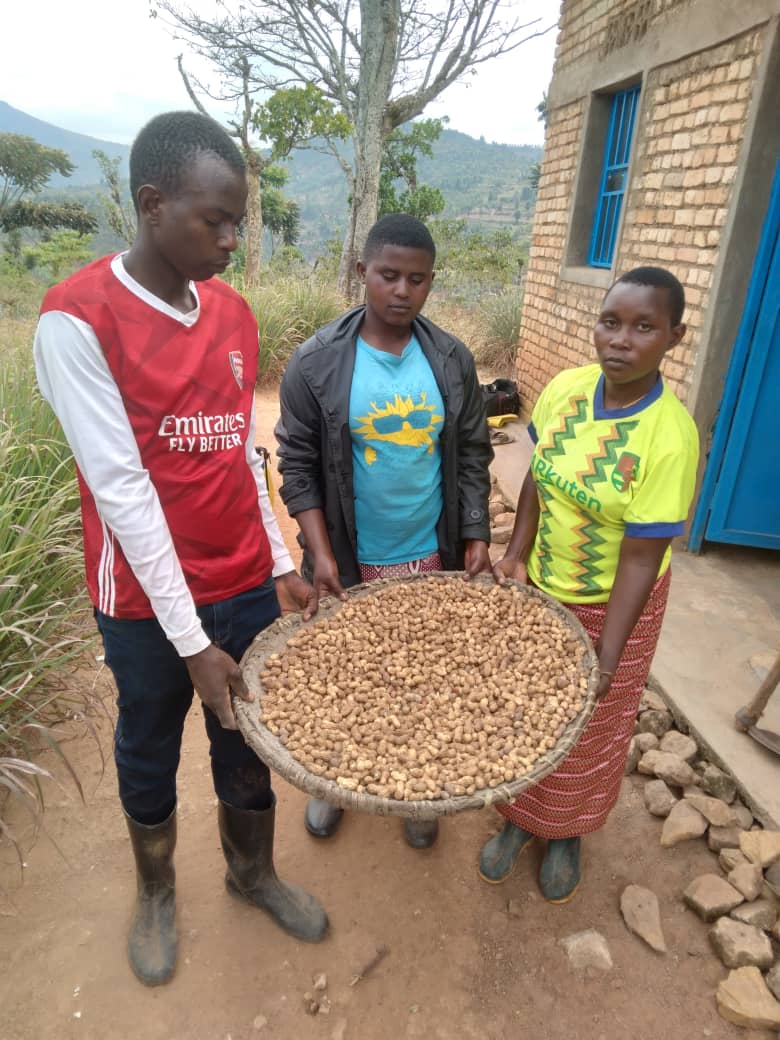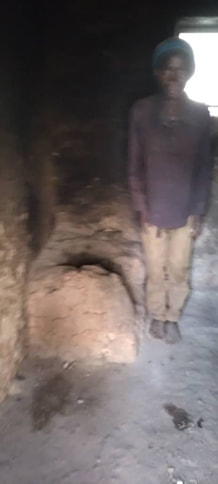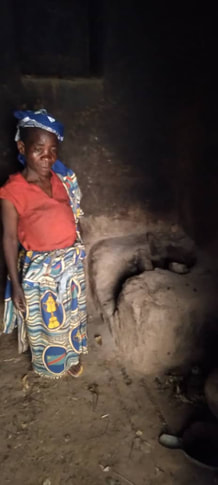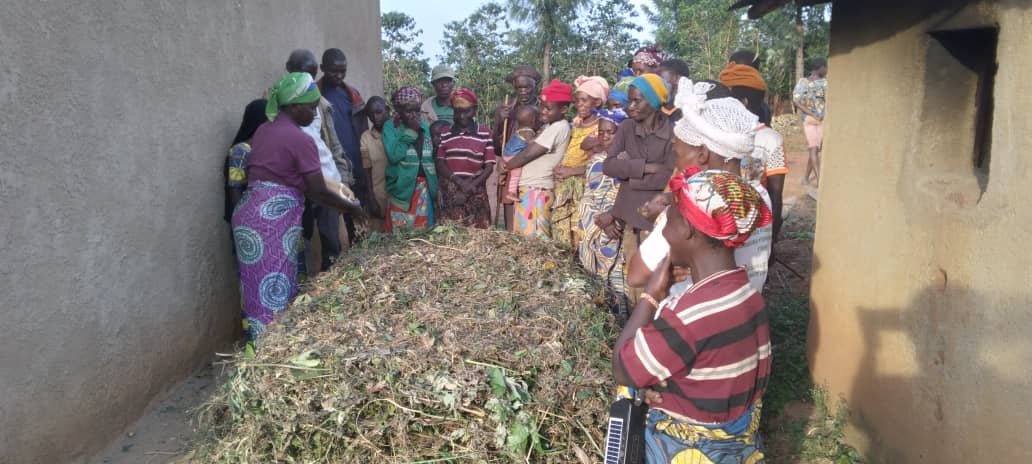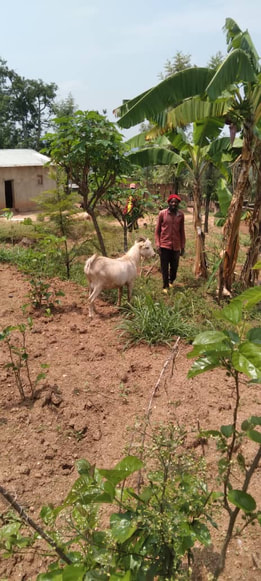|
Rwanda is returning to a new normality after COVID, and at present no restrictions are in place. For the project, we are adjusting to the reality of Fred's passing, and Jacques has risen to the challenge of having total responsibility on site. The general price rise in Rwanda is being felt by everyone, and for the project, we will notice increased wages and general cost of goods. WORK ON THE FARM The dry season lasted from mid May til mid September. No rain fell in this period, and there is less activity on the farm. The most important task is to keep plants alive. No rain means no growth, so no weeding and nothing is planted. This year the interns made more robust shade constructions to protect the young, vulnerable moringa trees and were more attentive to apply mulching. This resulted in a higher survival rate. The coffee seedlings planted in February struggled and many died despite regular watering. A worm tea bed is constructed on the farm. This is a composting system where "run -off" liquid (worm tea) is collected. On the farm the worm tea is used primarily on the coffee and macadamia as a pesticide and to strengthen. This worm tea bed will be used as a demonstration site for local farmers. Our aim is that farmers will collaborate to build a worm tea bed together. ( Picture below) Fences are constructed around many macadamia trees. Farmers with little or no land are invited to plant crops between the macadamia but it has been a challenge to control exactly where crops are planted. Now the fences define where the root system is and prevent planting too close. (Picture below) Compost heaps: altogether 25 large compost heaps are made on the coffee terraces. This is one of the ways we improve our soil quality as we have less manure from animals. (Picture below) Maintenance; repairing the cement base around the homestead building, roof repair, fences, etc. Torrential rain and high winds leave their toll! (Pictures below) SCHOOL UPDATE The interns come as usual to the farm through the dry season. Their prime job is shading, renewal of mulching and watering. Yet another "trio" have successfully completed their 3 month internship period! We are so proud of Jacques who so diligently follows up and motivates these young students, making an immediate and lasting impact on their own and their families lives. (Pictures below - Certificate and harvesting peanuts (food for workers) TWA The microsavings capital provided in February has grown by an amazing 50%! Beans were bought at harvest time, stored and resold later in the season for profit. A truly successful business initiative:) Cooking stoves: many have now built in their homes, not exactly like the prototype... but at least they're less of a hazard for children than a bonfire, and hopefully use less firewood. FRED'S FARM provided bricks, and a day's salary for each person who built one. (Pictures below of two of the stoves) Compost made in February was shared between all who helped make it. The villagers were able to grow beans and maize. In early September, 30 villagers met to make a new compost heap under JAcques and Providence's guidance. FRED'S FARM buys lime and pays for a day's work. There is a dire need to improve the soil quality in the tiny areas around the houses in the TWA village to make it possible to grow some food. (Picture below) COWS The last cows on FRED'S FARM were sold early September. This is the end of an era. We would like to thank all sponsors who have specifically supported the cow programme through the years. This programme lifted many, many families providing milk, income and knowledge. Since 2018 we have been working towards a more sustainable way to provide milk through introducing dairy goats. DAIRY GOATS FRED'S FARM has lent a dairy goat buck to the village leader, Innocent, and an interbreeding programme with local goats is now in place. Jacques supports Innocent in his efforts to promote the programme in the community. So far 7 farmers have brought their female goats for servicing. This is a real milestone! (Picture below) RAINY SEASON This is the season of high activity - to maintain, improve and develop the farm. This is the weather window to plant for short and long term; seasonal crops and trees which take 5 - 10 years to reach maturity. This is also the season for the farmers we invite to grow crops on FRED'S FARM to start their planting. This is the main crop of the year, the one which provides food for the family and the hope of some extra which they can sell for much needed cash for small essentials like salt, soap, in addition to school uniforms, paper and pencils for their children. Jacques has prepared well and has both seeds, saplings, tools and more manpower ready to start. He is in contact with the school principal to prepare for planting moringa seeds at the school to provide more food in the future for school lunches. THANK YOU to all who donate monthly, and to all who give now and again:) Your support makes a difference every single day! Support the project. Use the Support button below😀
0 Comments
|
Details
Categories |
